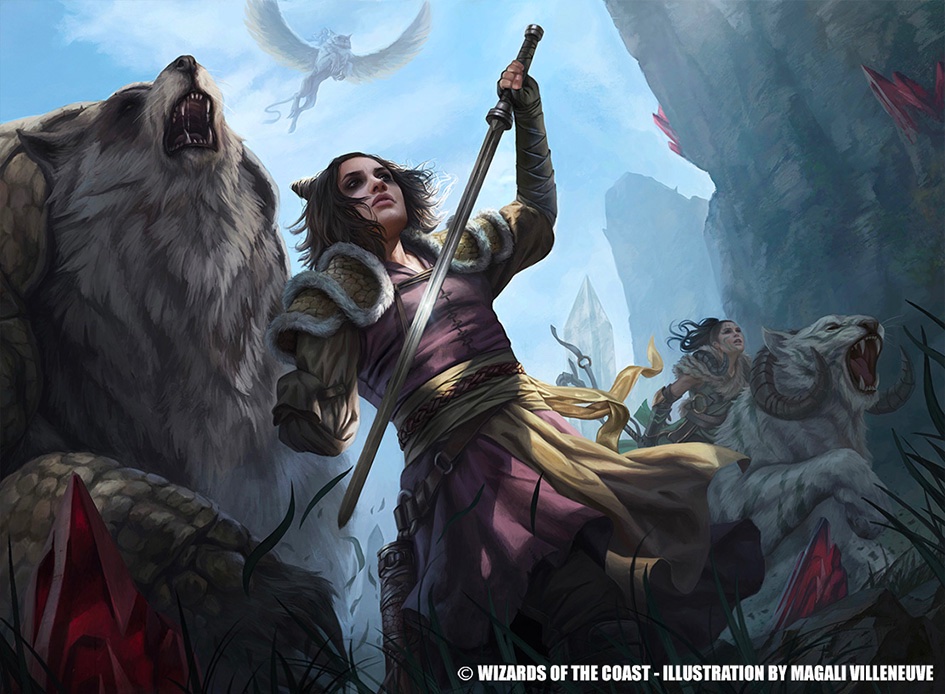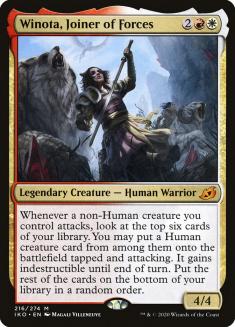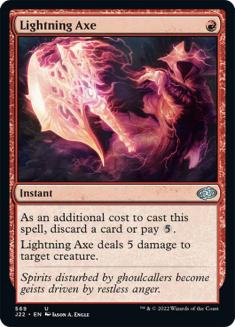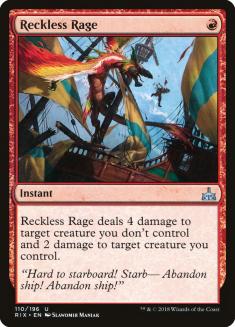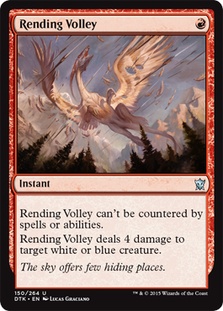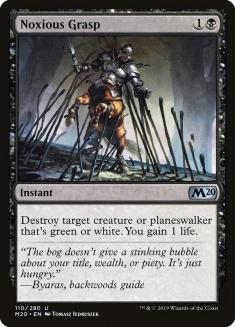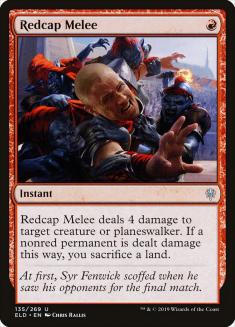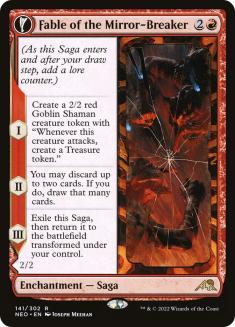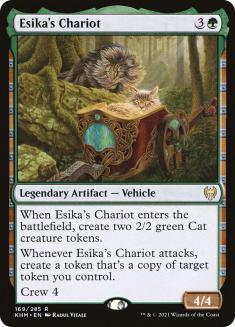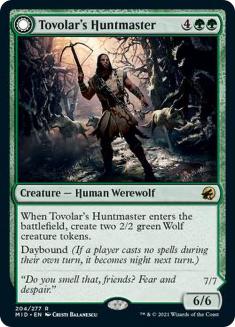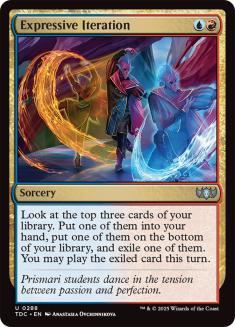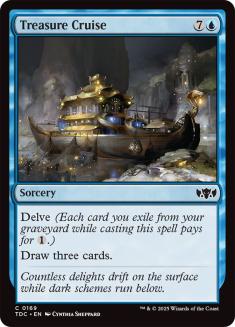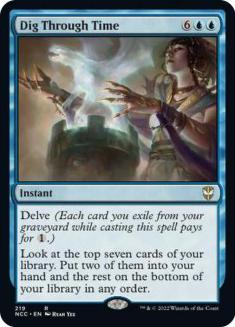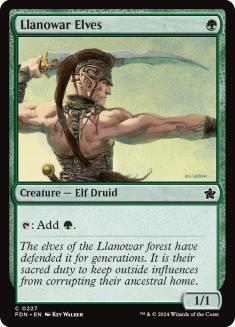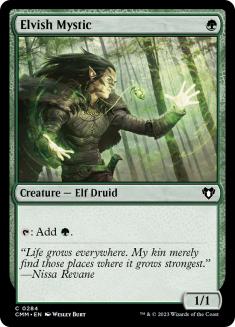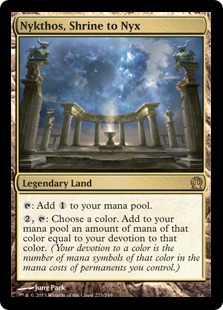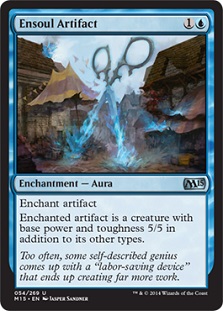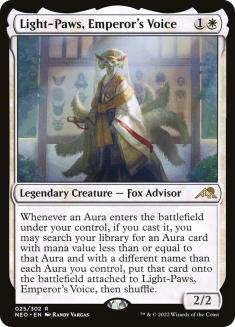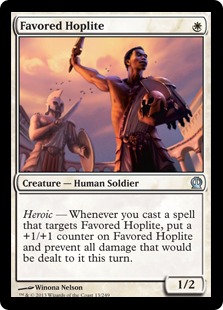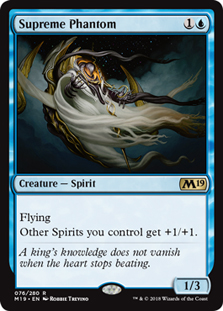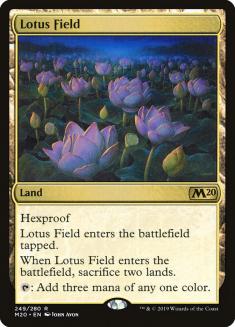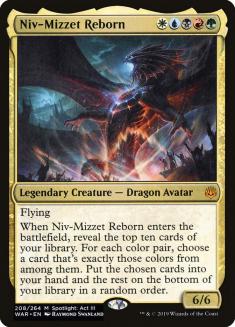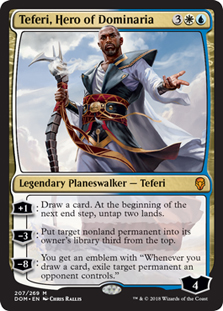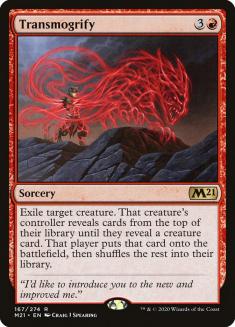Pioneer players woke up to an unexpected banning announcement yesterday that will refresh the format ahead of the first Regional Championship Qualifiers. What should we expect as the wreckage settles?
When Winota, Joiner of Forces was banned in Explorer, it was clear that it was on borrowed time in Pioneer. Nobody defends its play patterns; the only question was whether the complaints about them would fall on deaf ears.
Winota and Removal
This announcement answered that call and mentioned Winota’s “frustrating, removal-check gameplay” but that’s just part of the story. If the removal in the format were well-suited to containing Winota, this call and response would be more tolerable. Instead, Winota’s success exposed the limits of Pioneer’s interaction. It turns out that it’s really hard to actually remove Winota in the small window it gives you before the incoming stampede.
Take a look at the Rakdos Midrange deck featured in my article last week – the go-to interactive midrange deck of the format and the most successful deck by the numbers in recent results. If any deck should be able to answer Winota or her legions, it’s this one. Yet it’s almost impossible for Rakdos to handle a resolved Winota in Game 1! You not only need exactly Fatal Push, you need one of the few ways to turn on revolt at instant speed – effectively just the Blood token from Bloodtithe Harvester.
The generic, ‘small’ removal in red like Fiery Impulse or Strangle doesn’t do the job either. Lightning Axe and Reckless Rage were crucial removal spells not just for their synergistic properties in some decks, but because they were part of a very short list of cheap, near-universal removal at instant speed.
The Winota Sideboard Shuffle
The specialized removal that showed up in sideboards could finally answer Winota – and little else. One of the best feelings as a Winota player was discarding your namesake card to Fable of the Mirror-Breaker in the face of a telegraphed Rending Volley that had no other good targets in your deck. These narrow answers were necessary to keep up in that fight, but easily stranded otherwise.
The flippant response of ‘just play removal’ looks even less useful when you consider the rest of the deck. Fable of the Mirror-Breaker, Esika’s Chariot, and Tovolar’s Huntmaster aren’t just the ideal enablers and payoffs for Winota; they line up perfectly against the one-for-one removal that you need for Winota itself (as well as the familiar team of Llanowar Elves and Elvish Mystic casting these ahead of schedule).
Pioneer had adapted as much as it could to Winota with a card pool that wasn’t equipped for the task, and Winota was still winning a lot anyway. Removing Winota was a necessary measure, but the underlying truths it exposed are worth keeping in mind as we look for alternatives.
The Expressive Iteration
The other ban – and the lack of more – deserves some scrutiny.
Expressive Iteration is a standout in any format it’s legal in, from Standard through Legacy and even Vintage. Funnily enough, MTG Arena’s Explorer format, the one that’s intended to morph into Pioneer eventually, is the one format where it hasn’t proven itself – and now it will never get that chance.
This ban marks a welcome recognition of the card’s influence – and perhaps an indication that it is on notice in other formats too. For now, its removal from Pioneer is guaranteed to make a splash. Last week I covered the various Izzet decks all floating around the top tiers of Pioneer. You could sleeve up a new take on Steam Vents every week and see consistent success.
Despite sharing a colour combination, these decks had different goals and strategies, as well as strengths and weaknesses. The one constant was Expressive Iteration. Banning it is a smart move that should accomplish its objective (though the Jeskai Ascendancy fan in me worries about the splash damage).
Delve Delivers
There is another important context that informs this ban:
This is the first explicit statement we’ve had that Wizards of the Coast (WotC) views the delve spells as an integral part of the format’s identity. You could infer this to some extent from previous decisions – Dig Through Time was the main contributor to Dimir Inverter’s dominance and probably could have been axed before then – but it’s nice to have it in writing.
From there, the Expressive Iteration ban becomes inevitable. Expressive Iteration plus Treasure Cruise allowed Izzet Prowess to out-grind even the dedicated control decks, something that should be difficult for an aggressive strategy, and Izzet Phoenix had been doing the same thing for over a year. If the delve spells are off-limits, Iteration had to go. If you want that immunity lifted and Treasure Cruise axed instead, consider that Phoenix was the best deck a few months ago when it didn’t even play Cruise; another delve spell, Temporal Trespass, added its name to that mechanic’s hall of shame instead.
Pioneer Winners and Losers
Naya Winota is dead and buried; some form of Izzet will survive, but without an automatic seat at the top table. How will the rest of the format react?
Mono-Green Devotion
Mono-Green Devotion enjoyed a brief stint as the best deck again recently before that hype died down, but get ready to hear that tune once more. Mono-Green Devotion had the same broad plan as Winota, which left it vulnerable to many of the same adaptations, and in that head-to-head matchup, Winota proved why it’s so strong at crushing anyone who couldn’t interact. Now Mono-Green Devotion has another chance to show why so many people wanted Nykthos, Shrine to Nyx banned in the early days of Pioneer.
Linear Creature Decks
More generally, I would revisit the linear, interaction-light creature decks that were struck down by the Lurrus ban and kept down by the Winota menace, as well as the heavy focus on removal in the Izzet decks. Some new cards may help to revive these too. Early reports on Illuminator Virtuoso in Boros Heroic are promising.
In the same vein, Spirits’s main foils were Izzet Phoenix and Rakdos Midrange, so I expect Supreme Phantom’s stock to rise significantly. Mono-Blue Spirits headlined by Ascendant Spirit and Faceless Haven has been the most popular variant recently, but classic builds of Azorius and Bant Spirits are worth a look too.
Lotus Field Combo
If the format slows down a little now, Lotus Field is waiting to pounce. Naya Winota was generally faster than Lotus Field and could present relevant disruption if it wanted to; on the other hand, a creature-free combo deck salivates at the thought of everyone having to load up on irrelevant removal. I expect this is a good change for Lotus Field on balance, and that deck’s fans can hit the ground running now for this first wave of post-ban Pioneer tournaments.
Slow It Down
If you have more room to breathe, the slower decks start to look appealing again. The Transmogrify decks, such as the Gruul list with Titan of Industry that I featured last week or the more established Four-Color Fires (Yorion), are personal favourites that couldn’t keep up with the blistering speed of Naya Winota or Izzet Prowess but can lure me in more easily now. This is a great day for nonsense of any kind!
Everything Else
The other formats remain unchanged, but this announcement was a window into the official perspective on their health.
In Legacy, Izzet Delver will continue to dominate, barring fundamental changes that they have shown no willingness to consider. What more is there to say?
Some of it suggests a problem in finding useful data. The Standard section, for example, cites data from platinum and higher on the Arena ladder – not a good barometer, but what are they meant to use instead? There are no in-client Standard tournaments on Arena and very few third-party tournaments with meaningful stakes. Perhaps a look at Magic Online (MTGO) will help!
I see…
The line that these Jeskai variants maintain “healthy populations and win rates” starts to look like a lack of object permanence more than a justified boast about the state of Standard. Both of these Hinata pilots testified that the deck doesn’t belong in that pantheon of broken Standard decks, but there is no incentive to iterate and innovate rather than trying to emulate their success. The rotation is months away; I hope we have a new reason to care about Standard before then.

